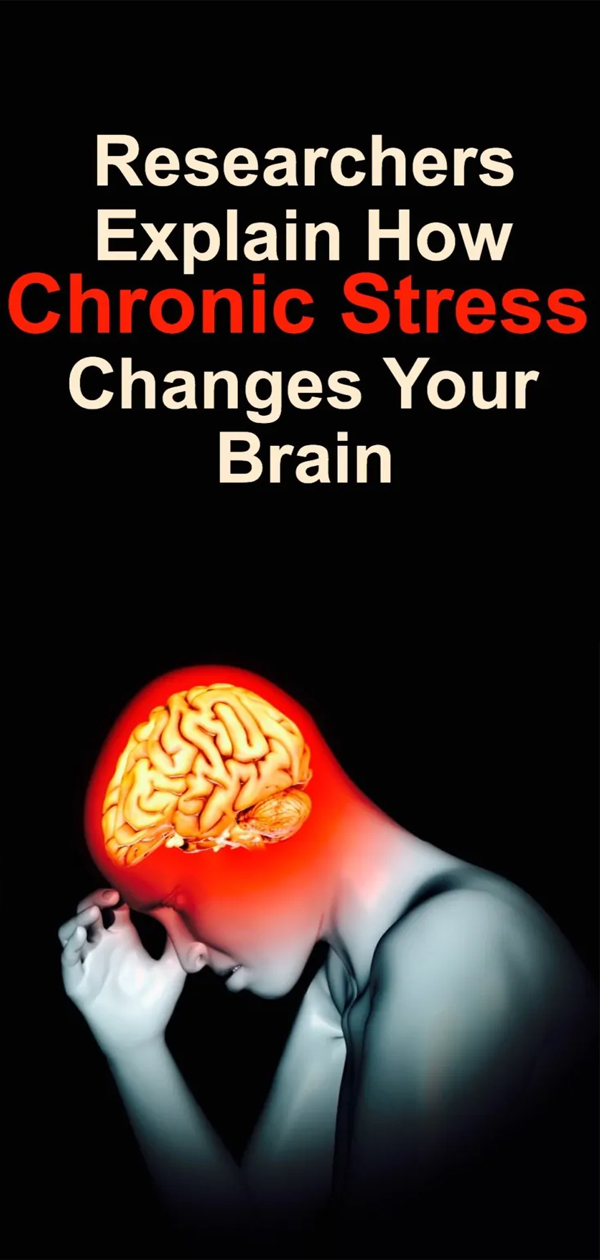“There’s a lot of stress out there, and to handle it, you just need to believe in yourself; always go back to the person that you know you are, and don’t let anybody tell you any different, because everyone’s special and everyone’s awesome.” – McKayla Maroney
Even as adults, our brains are elastic and vulnerable to change. All the things we do every day can have an effect on our brains – some good, some not so good. Stress can change our brains in a major way, even when we’re unaware of it. That is why making sure you know how to battle stress is so important.
“It has long been established that stress-related illnesses, such as post-traumatic stress disorder (PTSD) trigger changes in brain structure, including differences in the volume of gray matter versus white matter, as well as the and size and connectivity of the amygdala,” says endurance athlete, coach and author, Christopher Bergland.
Chronic stress can have an effect on our physical bodies, as well as our brains. Researchers have an answer for what exactly goes on in our brains when they’re subjected to long-term, chronic stress.
Here Are 5 Ways How Chronic Stress Changes Your Brain
1. Affects The Production Of New Brain Cells
Our brains are constantly making new brain cells, just the same way that our brains are constantly losing them. When our brains are subjected to chronic stress, it halts the productions of those new brain cells. The things in our brains that cause new brain cells to grow can become disturbed by the effects of stress, which can make it difficult to create new brain cells. This can cause side effects like anxiety, depression and OCD symptoms.
“Cortisol creates a surplus of the neurotransmitter glutamate. Glutamate creates free radicals — unattached oxygen molecules — that attack brain cells much in the same way that oxygen attacks metal, causing it to rust. Free radicals actually punch holes in the brain cell walls, causing them to rupture and die,” says author and teacher, Deane Alban.
2. Affects Your Memories And Emotions
Having trouble with our memory is usually the first sign of stress-related issues. Chronic stress can do a number on your short-term memory. It can also make your emotions feel wacky. When you’re dealing with chronic stress, the signals in your brain that are used to help you remember things don’t fire as often. “Ultimately, these changes can affect cognitive function, including changes in learning, memory, and emotional well-being,” says Sundari Chetty, PhD.
3. Stress Causes Anxiety
Dealing with chronic and long-term stress can affect more than just your short-term emotions. When we are dealing with stress for long periods of time without de-stressing ourselves, the stress can build up in our amygdala, which is the part of the brain that processes fear.
“Substantial alterations in myelination have been noted in a number of neurological conditions and could potentially contribute to mental disorders such as anxiety, depression and post-traumatic stress disorder,” adds Chetty.
When dealing with chronic stress, our brains can often get stuck in a feedback loop for fear and anxiety, which in turn causes more stress, which in turn causes more fear and anxiety.
4. Chronic Stress Causes Inflammation In Your Brain
The same way that stress on your muscles can cause inflammation in your limbs, stress can cause inflammation in your brain. There is an immune cell in our brain that helps fight off disease. When we encounter stress, our brains send off a signal to the immune system, which causes inflammation in the brain.
Unfortunately, if there’s nothing there but stress, our brains stay inflamed until the immune system runs its course. Inflammation in the brain has been correlated to different issues, like anxiety, depression and OCD.
“Depression is a complex illness and we know that it takes more than one biological change to tip someone into an episode. But we now believe that inflammation in the brain is one of these changes and that’s an important step forward,” says Dr. Jeffrey Meyer.
5. Stress Decreases Your Serotonin
Depression is often linked with chronic stress due to the fact that when our brain faces a lot of stress without any breaks, it often stops producing serotonin and dopamine. Serotonin and dopamine are otherwise known for making our brains happy. When we laugh, smile, see something we like, or have fun, all of these things cause a burst of dopamine and serotonin in our brains, which gives us the signal that “this is good!”.
Unfortunately, stress stops the production of those chemicals, which can cause depression, because our brains are no longer getting the chemicals that help make us happy; instead, they get an unlimited dose of cortisol.
“With chronic stress, cortisol doesn’t get switched off… It’s responsible for weight gain, particularly increased abdominal fat, and it’s been implicated as the leading cause of osteoporosis, digestive problems, hormone imbalances, cancer, heart diseases and diabetes. Cortisol depletes serotonin and dopamine levels. It actually damages the receptor sites of these neurotransmitters,” adds Australian Spinal Research Foundation.
Stress can have all kinds of effects on your brain that can change the makeup of your precious gray matter. Fortunately, our brains are adaptable, and can be repaired when chronic stress starts to take hold. The best thing to do to fight stress is to know just how to relax and de-stress throughout the day so that your brain can stay happy and healthy. Here are some key ways that researchers have found helps de-stress our brains.
Here Are 3 Ways To De-Stress Our Brains
1. Eat Antioxidant-Rich Foods
Antioxidants are good for your brain, because they stop the death of brain cells that can be caused by chronic stress. Fruit and vegetables are a good example of foods that you’ll want to eat more of to get a lot of antioxidants. Green tea is also good for antioxidants, so if you’re normally a coffee drinker, you may want to switch to green tea to help protect your brain from stress. Speaking of coffee…
2. Cut Down On Caffeine
Caffeine is a stimulant, and your when you’re stressed out, the last thing that you need is something else that will amp you up. So, if you’ve got a problem with waking up in the morning and needing your two and a half cups of coffee to get going, you may want to try another method of getting ready for the day.
“Caffeine stimulates your nervous system, which means too much can lead to a rapid heartbeat and increase in blood pressure. It can also irritate your digestive system,” says registered dietician Cynthia Sass.
Cutting back of caffeine can really help reduce the amount of stress that you’re under and reduce stress-related brain issues. So, if you’re normally a coffee drinker, you might want to try…
3. Better Sleeping Habits
Are you a night owl? Or maybe your sleeping habits are all over the place? Stress can be caused by poor sleep habits, so if you’re denying your brain a solid eight hours of sleep, you may need to fix your sleeping patterns.
“Sleep deprivation elevates stress hormones and can have negative impacts on the brain, including the hippocampus,” adds Chetty.
Getting better sleep will help you brain recharge those brain cells and make you more capable of fighting off stress during the day. If you’re more able to handle stress, your brain will benefit big time.


